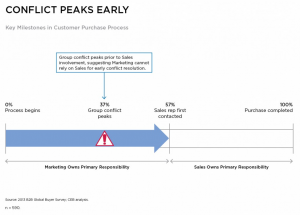
As a web developer working on a variety of B2B web designs and launches, internet security is very important. If your firm has a website or email, you should also be concerned about security. There are several things I recommend to our clients and to prospective clients to enhance their firm’s online security.
First, for stability, redundancy, and capacity, your firm should decouple your website, email, and DNS services immediately. Many firms run DNS, email, and website on a single dedicated-virtual server. This type of setup has zero fault tolerance and is not secure.
Most hosting companies use a storage method called “RAID 5.” This means that all of the data for your company – email, DNS, and website – are potentially stored on hard drives that have a 1-drive fault tolerance. So if two of these storage drives broke, all of your digital services would go down, and it would likely take a while to recover everything.
If the server goes down, everything will go down.
Below, I’ve outlined a few simple steps that will dramatically enhance the security of your website, email, and DNS by decoupling them.
How to Manage Your DNS
My first suggestion is to manage your domain name system (DNS) through a service like CloudFlare. Their introductory package is free (and works very well), and they have other technologies that speed up your site around the world.
How to Manage Your Email
My second suggestion is to move up to a business-grade email platform, like Microsoft Exchange. Through Office 365, you can get Microsoft Exchange for only $ 4/month/user.
How to Host Your Website
Bop Design is a WordPress agency, so this suggestion applies to websites that are built on WordPress. My third suggestion is to host your B2B website on a platform that’s designed for “WordPress” hosting, like GoDaddy Managed WordPress. They automatically apply certain security patches to a WordPress installation and have specially designed servers to speed up WordPress, itself.
Why You Want Redundancy
What this decoupling offers is an incredible amount of redundancy. If your website hosting goes down, it doesn’t affect your email. DNS is unlikely to go down, since CloudFlare has so much redundancy. Your Exchange email will also have a ton of redundancy.
The Risk Is Real
What I’m getting at is that you have a very high level of risk if anything happens to a dedicated virtual server that is hosting your website, email, and DNS. Even it if has to be rebooted, you temporarily lose all three of your core services. And say there was a natural disaster at their datacenter facility – or some other kind of outage – you could be looking at days of downtime.
It Will Cost You…But It’s Worth It
The downside of this is cost. As of the time of publication, a typical bill for hosting all three services on a virtual server is about $ 500/year. The services I have outlined above would look like this:
Hosting: $ 5/month * 12 = $ 60
Exchange: $ 4/month * 50 users * 12 = $ 2,400
CloudFlare: Free tier
Total: $ 2,460/year
This price is significantly higher than the $ 500 but provides a lot of performance and risk mitigation. For example, if our website went down, as a digital marketing agency, it would be detrimental to our business. Email is a close second. Think of how many customers we would lose if our website was down for a few hours or even a full day! Who wants to work with a firm who doesn’t have a website that works?
Everyone Else Is Doing It
It is extremely rare, today, to find all of these services tied together on the same server. More and more, firms that are serious about protecting their online services, privacy, and intellectual property are decoupling these services and investing in a separate website, email, and DNS hosting services.
Digital & Social Articles on Business 2 Community(63)







